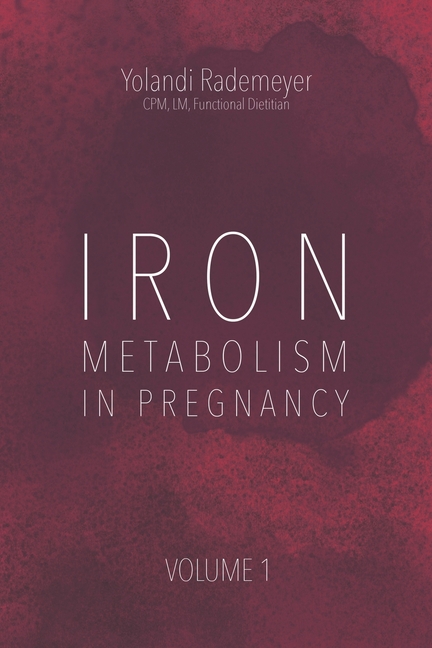Description
The diagnosis and treatment of IDA in pregnancy, while relatively straightforward, is often overlooked and not optimally managed by healthcare providers. This is largely because many practitioners lack adequate knowledge on iron repletion and often approach treatment using an excessive use of oral iron, which offers marginal to no benefit with increasing doses, but can cause significant gastrointestinal toxicity."
I became a midwife with the passion to create awareness of prevention. As midwives we are mostly trained to manage that which has already manifested. I believe that midwives need more education so that we can aim to prevent pregnancy complications and keep clients at low risk to stay in our care for the births that they were hoping for.
Some may say "midwives have been around forever and we never needed to understand biochemistry for women to have healthy babies safely at home". This statement is true. However, my first bias here is that I am a forever scholar. I just genuinely love education. I feel like my willingness to sit on my hands as a midwife expands the more I know. But I also want to remind everybody that the world is changing. We were so much healthier 100- 200 years ago. We didn't see pregnancies complicated by gestational diabetes or hypertension or inflammation nearly as much as we do now. Diseases linked to chronic inflammation, such as heart disease, diabetes, cancer, and autoimmune disorders, have become leading global health issues and people are entering their pregnancies with these underlying issues.
Iron-deficiency anemia, the most common pregnancy-related nutritional deficiency, affects over 40% of pregnant individuals globally, according to the World Health Organization (WHO). This prevalence has risen significantly in certain regions, as diets have shifted away from nutrient-rich whole foods toward ultra-processed options with low bioavailable iron. Environmental factors, such as increased exposure to endocrine-disrupting chemicals, further impair iron metabolism and absorption, worsening anemia rates.
The point I'm trying to make is just the fact that people are coming into pregnancy a lot less healthier than they used to. It's not pregnancy that is seen as a medical condition. It's the fact that people are entering pregnancy with significantly more underlying health issues that affect pregnancy.
If we don't learn the physiology and understand how the body operates in pregnancy, our hands are tied and we have no choice but to send clients into the medical model where they ALSO don't understand what is best when it comes to preventative care.
The following book contains the information that I have been teaching for many years and I am able to give you practical advice and guidance on. This was a topic I couldn't find a comprehensive book or even webinars on. I hope for this to be informative and thought provoking because again, as midwives we are taught medicine from the only place that medicine exists, in the hands of those who do not understand biochemistry. I want to see that change.
This first volume teaches the basic principles. I have midwifery students and also pregnant clients in mind when I write this. I will expand on more detail in further books. I want this book to feel like a conversation and I want the questions from this book to formulate volume two of this book. By NO means is this a comprehensive book on everything you can learn about iron metabolism. It's just a place to start and we will build from there.
Product Details
- Apr 16, 2025 Pub Date:
- 9798319037428 ISBN-10:
- 9798319037428 ISBN-13:
- English Language




